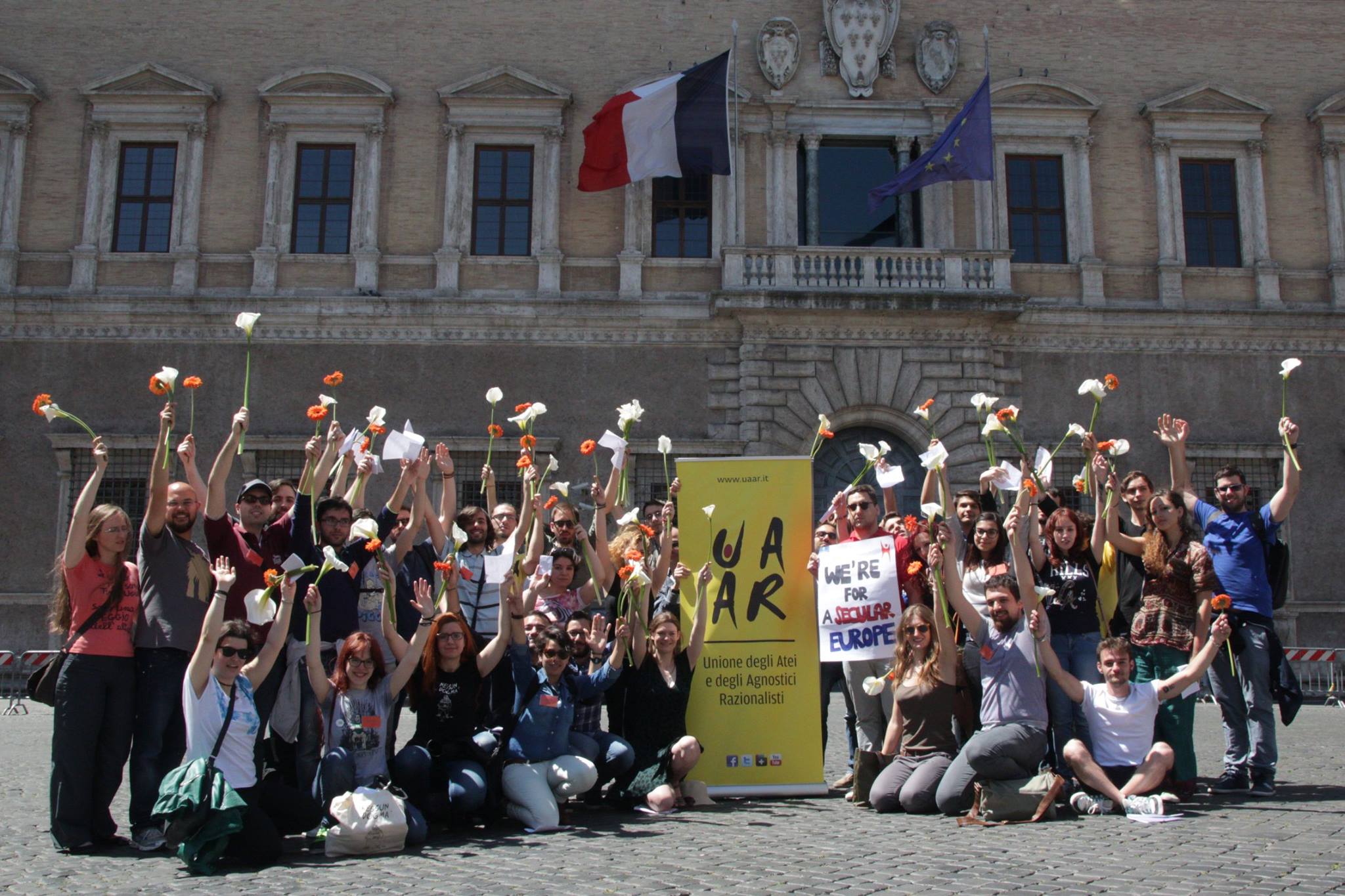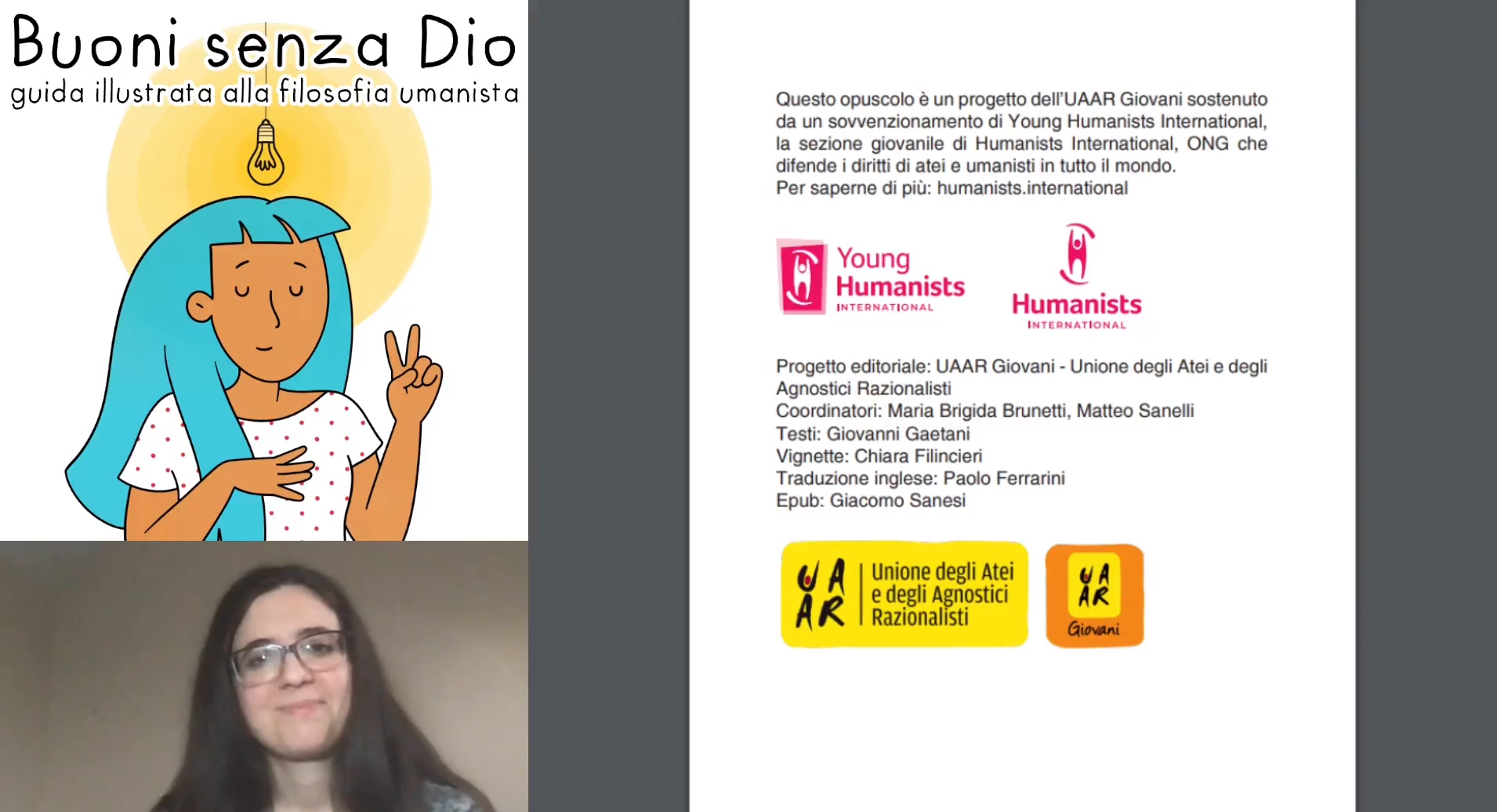The Italian Union of Rationalist Atheists and Agnostics (UAAR) was founded in 1987 and is a Member of Humanists International since 2007. In 2021, thanks to the support of a grant made available by Young Humanists International, UAAR’s youth section will deliver two online workshops to train the next generation of young humanists on social media management and other skills to run a successful humanist youth section.
Background
The Union of Rationalist Atheists and Agnostics (UAAR) is the biggest association in Italy that defends and promotes humanism, rationalism and the secular rights of non-believers. Since its founding in 1987, UAAR has successfully supported civil rights and secular society in opposition to encroaching religious influence. Over the years, UAAR has contributed to the advancement of the global humanist movement in many ways, including the organization of the pilot event of the Café Humaniste series in 2017, a 5,000€ donation to support the Protect Humanists At Risk campaign in 2018, the conference and the book “Non Believers’ Europe” in 2019, and other initiatives.
In 2019, UAAR’s youth section (UAAR Giovani, in Italian) has been awarded with a Young Humanist Grant to create and publish “Good without a God”, an illustrated guide to humanism for teenagers from all around the world.

Following the attacks on Charlie Hebdo in January 2015, UAAR’s youth section held a rally of solidarity in front of the French Embassy in Rome in May 2015.
About the project
In recent years, a myriad of new social platforms have emerged and grown exponentially especially within the youngest communities, and organizations and associations struggle to keep up with their fast-paced evolution. Social Media Communication is a highly professional work that requires skills and practice to be done properly and efficiently, and this level of skill and knowledge is hard to find among volunteers of humanist associations all over the world.
The project is aimed at volunteers of humanist associations who work on social media communication (SMC), especially youth groups that usually are in charge of dealing with SMC.
It consists of an online course, with workshops, webinars and asynchronous integrated digital teaching.
With this project, UAAR Giovani will support the Members and Associates of Humanists International to be more effective, resilient and sustainable, improving the success and performance of youth sections of the organisations involved and facilitating twinning programmes between organisations. The goal is to build a web formed by the participants that will work together at the webinars and workshops and keep in touch afterwards.

A moment of the presentation of “Good without a God”, published with the support of Young Humanists International.
UAAR Giovani aims to create a generation of volunteers with a high level of training and skill on SMC and other communication topics, helping associations to improve their online presence and social media performance. Training the current generation of volunteers is not, however, the only goal: it is important to pass knowledge and skills on to the next generation and guarantee the continuity of our work in the near and far future, especially considering that youth groups in all associations have a high level of generational turnover.
To achieve this goal, UAAR Giovani proposes to enrich the educational plan with managing and training workshops to help the volunteers who will take part of this project to spread out the skills acquired afterwards.
The educational strategy involves two main areas: social media skills and management skills.
AREA 1: Social media skills (up to 100 participants)
This area includes skills and techniques for Social Media Communication (SMC), content creation, Search Engine Optimization (SEO), Copyright management.
The format of the courses will be that of webinars (which can accommodate dozens of people) and boosted by the integrated asynchronous teaching mechanism, implemented via an online platform where the teachers can assign tasks and provide notes and feedback to students.
AREA 2: Management skills (up to 25 participants)
This area includes skills and techniques on management for working groups, how to address legal issues, training skills and peer-to-peer education. Participants of AREA 2 also participate to AREA 1 courses, and are chosen among those who hold a leadership position within their associations. The aim is for them to transfer the skills acquired through this course to the next generation of volunteers in their associations, spreading knowledge and effectively multiplying the impact of this project.
Training will be given through online workshops and peer to peer education.
